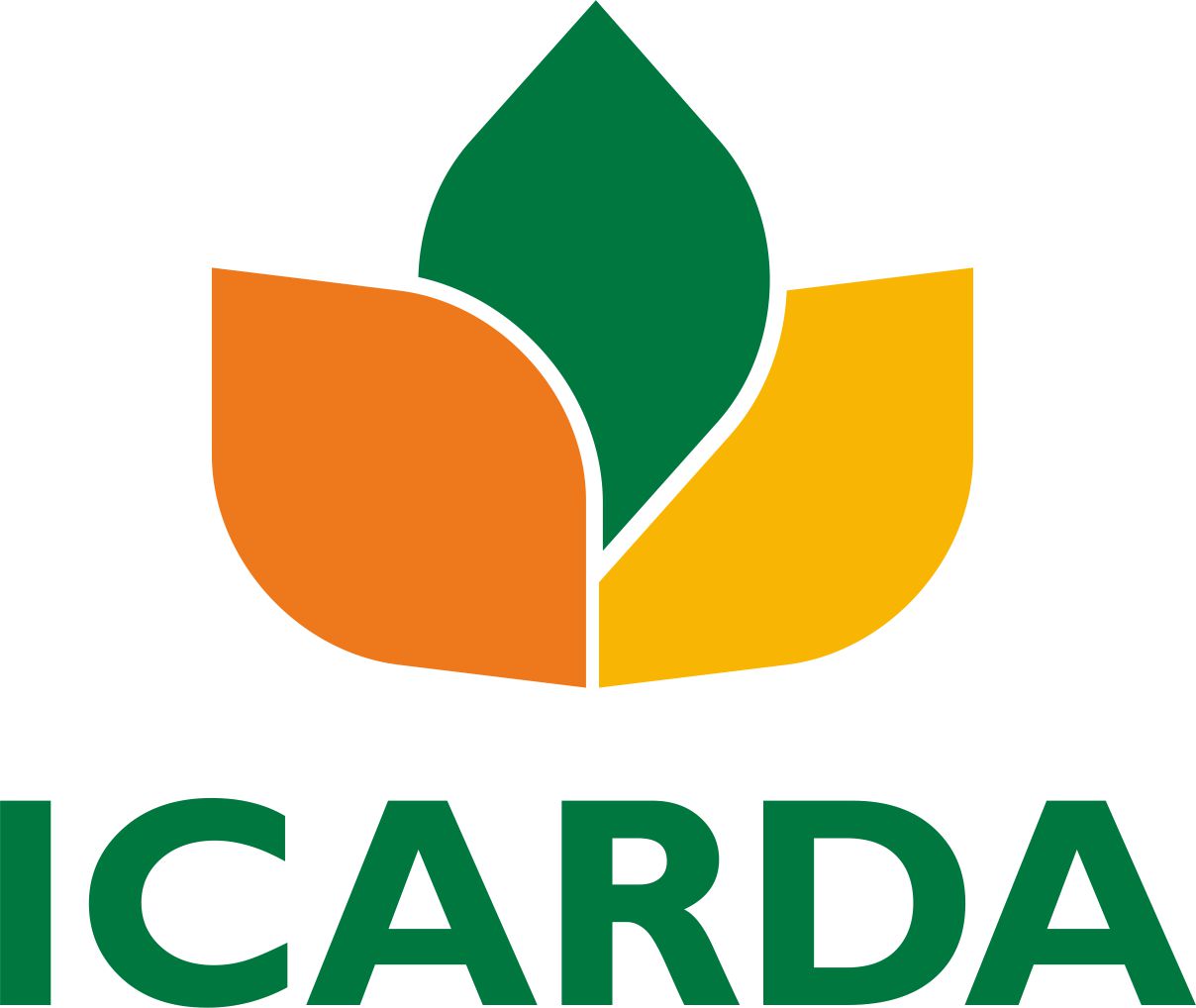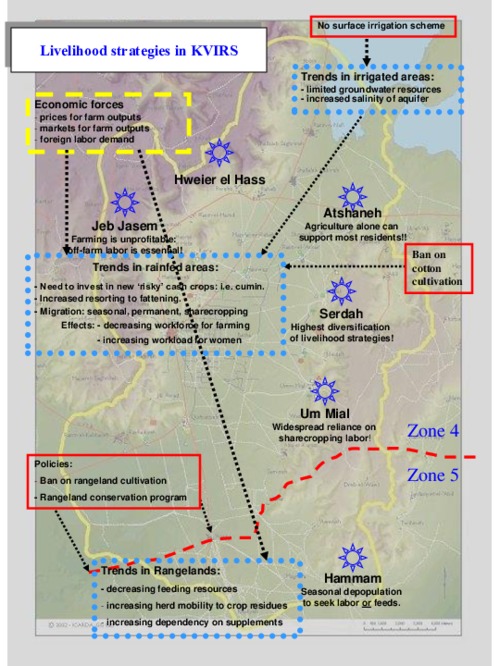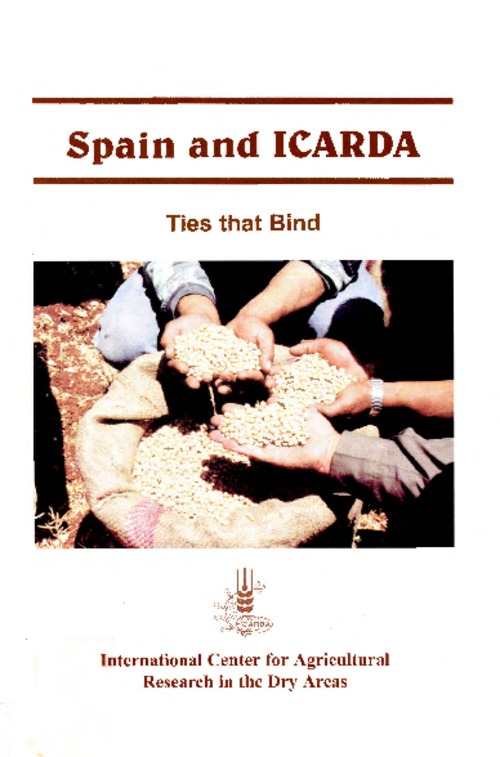Location
The International Center for Agricultural Research in the Dry Areas (ICARDA) was established in 1977. It is one of 15 such centers supported by the CGIAR. ICARDA’s founding mandate to promote agricultural development in the dry areas of developing countries remains highly relevant today.
ICARDA works with a tight focus on the problem-solving needs of resource-poor farmers, achieving this through the in-field delivery of its research outputs. Although global food production has increased by 20 per cent in the past decade, food insecurity and poverty remain widespread, while the natural resource base continues to decline.
International research centers such as ICARDA, which have helped drive previous improvements, continue to deliver new technologies to support sustainable growth in agriculture, and crucially, to work with a wide range of partners to accelerate the dissemination of these technologies.
ICARDA’s biggest strength is its staff – 600 highly skilled men and women from 32 countries. Our research and training activities cover crop improvement, water and land management, integrated crop-livestock-rangeland management, and climate change adaptation.
Other interventions include:
- Water harvesting - supplemental irrigation and water-saving irrigation techniques
- Conservation agriculture methods to reduce production costs and improve sustainability
- Diversification of production systems to high-value crops – horticulture, herbal and medicinal plants
- Integrated crop/rangeland/livestock production systems including non-traditional sources of livestock feed
- Empowerment of rural women – support and training for value-added products.
The ICARDA genebank holds over 135,000 accessions from over 110 countries: traditional varieties, improved germplasm, and a unique set of wild crop relatives. These include wheat, barley, oats and other cereals; food legumes such as faba bean, chickpea, lentil and field pea; forage crops, rangeland plants, and wild relatives of each of these species.
ICARDA’s research portfolio is part of a long-term strategic plan covering 2007 to 2016, focused on improving productivity, incomes and livelihoods among resource-poor households.
The strategy combines continuity with change – addressing current problems while expanding the focus to emerging challenges such as climate change and desertification.
We work closely with national agricultural research systems and government ministries. Over the years the Center has built a network of strong partnerships with national, regional and international institutions, universities, non-governmental organizations and ministries in the developing world and in industrialized countries with advanced research institutes.
THE ‘DRY AREAS’
Research and training activities cover the non-tropical dry areas globally, using West Asia, North Africa, Central Asia and the Caucasus as research platforms to develop, test, and scale-out new innovations and policy options.
Dry areas cover 41 per cent of the world’s land area and are home to one-third of the global population. About 16 per cent of this population lives in chronic poverty, particularly in marginal rainfed areas. The dry areas are challenged by rapid population growth, frequent droughts, high climatic variability, land degradation and desertification, and widespread poverty. The complex of relationships between these challenges has created a "Poverty Trap."
Members:
Resources
Displaying 421 - 425 of 431ICARDA Annual Report 2002
The year 2002 marked ICARDA's 25th anniversary, and coincided with several honors and awards for the center's excellence in research. Research on developing high-yielding kabuli chickpea varieties that thrive in cool, wet winter conditions earned the 2002 King Baudouin Award of the Consultative Group on International Agricultural Research (CGIAR), jointly with the International Crops Research Institute for the Semi-Arid Tropics (ICRISAT), which focuses on desi chickpea.
ICARDA Annual Report 2001
The world is witnessing a period in its history when the increasing socio-political upheavals are taking the lives of thousands, and destroying the natural wealth of our planet. Poverty and food insecurity are two key forces driving this destruction. These ongoing problems compound those already being posed by an increasing shortage of water, scarcity of productive land, an expanding population, and the threat of global warming.
Livelihood strategies Khanasser Concept_INRM
Khanasser Concept_INRM of Livelihoods analysis study for The Khanasser Valley Integrated Research Site (KVIRS) project.
Spain and ICARDA
Links between ICARDA and Spain are long established. A glance at any map of the Mediterranean will help explain why both have benefited from this collaboration. Spain is an active member of the European Union but it is also separated geographically by just a handful of kilometers from part of ICARDA's mandate area—North Africa. In history, the connection has been even closer, both politically and culturally, when southern Spain came under the influence of the Arab world.
Caravan 13: Central Asia and the Caucasus (CAC)
This issue of Caravan chronicles ICARDA’s efforts in developing a research strategy and a need-based research program for the CAC region. In doing so, ICARDA played a major role in bringing together all partners, most importantly donors. The article on page 8 traces the history of this effort and provides an overview of the current status of collaboration.







